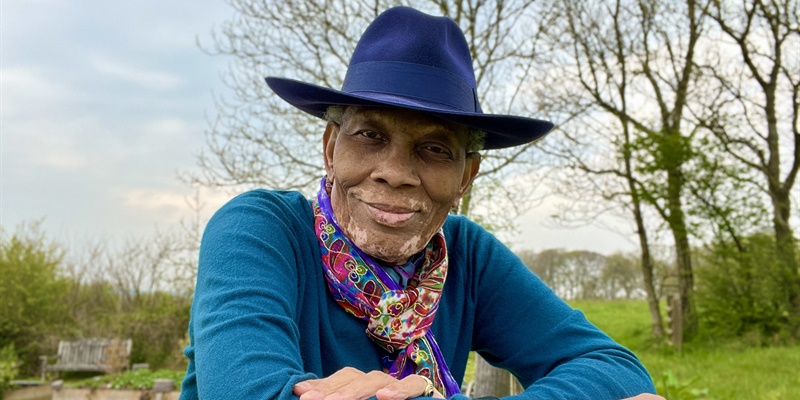
Wilfred was born in Jamaica and is part of the Windrush generation. He came to the UK around the 1960s and settled in Birmingham. Wilfred was diagnosed with acute myeloid leukaemia and shares his reflections post-diagnosis and treatment, alongside the challenges a black person needing a stem cell transplant can face.
Wilfred also talks about the need for emotional support when living with cancer and how Macmillan can help. The Online Community is a space to talk about how you are coping and access emotional support in our cancer forums. Join our Emotional support forum or post in our other cancer forums if you need additional support today.
The Community is a safe and supportive space for people to share their personal experiences with cancer so if you are affected by Acute myeloid leukaemia, you are welcome to join our Acute myeloid leukaemia forum. There are lots of other cancer-type groups you can join where you can access emotional and practical support from people with similar experiences.
My life was very, very successful. I've gone from a boy, a poor boy, into being really successful, having a flat in London and got my farm. I was then struck with acute myeloid leukaemia. Anybody out there who knows about acute myeloid leukaemia knows it's a pretty nasty disease. In my case, I'd always had a condition called myelofibrosis, and it's one of those sort of conditions that the consultants would monitor.
But they'd say that one in a million it might mutate into cancer.
In my case, it mutated. It's very, very aggressive and I can remember being rushed into hospital and generally anybody with any form of acute myeloid leukaemia, you have to move fast. The doctors had to try and get it under control so for days and days and days they were trying to get this leukaemia under control.
I had to be put into one of these induced comas, it was really touch and go. They didn't think that I would make it. I remember my consultant saying to me, “you've got one or two choices. We could either send you home with some medication, but you will be dead in three months’ time because it will come back or we give you a stem cell transplant”.
Usually, they don't like giving stem cell transplants because it's quite a brutal regime. There are so many things that are not in my favour, my age was not necessarily in my favour. They had to make big calculations about whether they were prepared to even get me to undergo this treatment because it's so brutal.
They decided that I actually ticked all the right boxes to give it a go and to have a stem cell transplant, you need to get a match. Because I'm from a family of 11, they're very confident that one of my siblings would be a match but not one of them was a match.
They have a worldwide web where they search for any donors on that registry. They couldn't find the match there. One of the reasons why they couldn't find a match is because not enough people of colour are going on to that register.
My options are narrowing because they couldn't find a sort of match either. I had my treatment at UCH and if I wasn't at UCH, I would not be alive today. They were world leaders in this type of cancer, they therefore decided that they would do something called a haploidentical stem cell transplant. I'm not a medical person, so I don't really understand what it means, but it's like a half-transplant. It was that or die, so obviously, I said yes to it.
Many people that I was in the same hospital with - that I would talk with on a day to day basis - didn't make it. There's no rhyme or reason about why I made it and they didn't. So every day now I look in that mirror, I know that actually it's because of science, it's because of good prayer, it's because of luck that I am alive today.
Macmillan does some phenomenal work and gives people a lot of support. One of the things that I remember when I was having my treatment, there was a lot of psychological support. I think it's really, really important. I mean if there's one thing I would say to people, is that if you are offered psychological support, take it. Don't think you've got to be a stoic and just bear it out. Take it because it's a massive emotional impact on your life.
There's one thing that is certain, is that life is uncertain. In order to live with this condition, you have to make a friend of uncertainty. You've got to put your arms around it and say, I do not know what is ahead of me, but I have the confidence within that whatever it is, I will find the way.
We’d like to thank Wilfred for sharing his personal experiences with us here on the Online Community. Below are some links to further support resources and information and do leave your messages of support for Wilfred in the comment box below.
Whatever cancer throws your way, we’re right there with you.
We’re here to provide physical, financial and emotional support.
© Macmillan Cancer Support 2026 © Macmillan Cancer Support, registered charity in England and Wales (261017), Scotland (SC039907) and the Isle of Man (604). Also operating in Northern Ireland. A company limited by guarantee, registered in England and Wales company number 2400969. Isle of Man company number 4694F. Registered office: 3rd Floor, Bronze Building, The Forge, 105 Sumner Street, London, SE1 9HZ. VAT no: 668265007